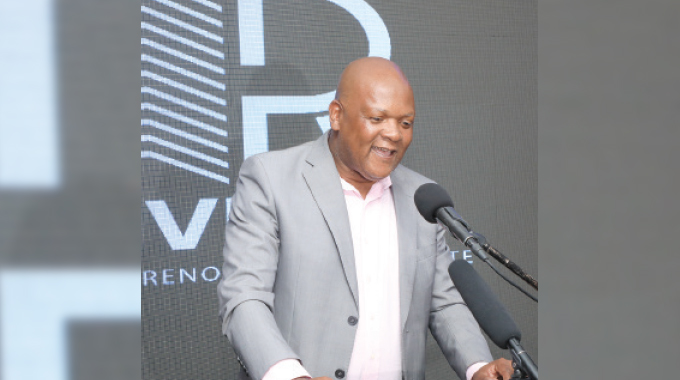Bank charges derail banking confidence and trust

Morris Mpala, MoB Capital Ltd
A BANK is defined as an institution that brings those with money and those without money together. It is where those with excess bring money in confidence trusting as and when they need their money they will be able to get it. In return they get a positive return on their funds. And those in need come to these institutions to borrow and pay some interest for using the money that the bank is holding in trust with confidence that the borrowers will return the depositors funds. It is a meeting place with legal procedures and processes so that they can earn some commission.
The Reserve Bank of Zimbabwe (RBZ) in their wisdom to encourage financial inclusion has encouraged banks to give positive interest rates on deposits and urged them to also charge minimal costs to the operation of accounts within their jurisdictions. After the advice that financial inclusion has somewhat attained to some degree, it is disheartening to note the usurious charges rearing their ugly head as if to say cash is better.
Cash shortages
No one is willing to bank cash with such scenarios especially after cash has been commoditised to such unprecedented levels. In case cash is more convenient that most forms of payments and very cost effective, which is want clients are looking for.
Plastic money use
The costs have gone up and it’s a huge cost to customers given it now used for minimal amounts purchase wise. Add in fraudulent activities it has become a deterrent to get a bank account and enjoying cashless activities.
Cash lite economy
This phenomenon cannot be supported by the charges that are prevailing in the banking sector. Some transfers are taking longer thus discouraging would be account holders as the inconvenience is just too much for the majority hoi polloi mobile money operators.
Monthly charges vs cash
The collective monthly charges are just too high and negates the use of digital platforms as a means of payment.
It gives a huge premium to those that get cash that fuels the appetite for cash transactions (understandable so) to the lower income bracket who can afford to queue and access hard cash.
This rise in bank charges is duly contributing to the early hours, very long queues being experienced at traditionally banking halls.
It has increased the demand for cash facilities, cash hoarding, cash barons, cash mongers as it makes sense to hoard, retail the cash as a commodity.
It also increases the transitory nature of deposits as the hoi-polloi seek arbitrage opportunities.
How do we expect mattress banking to decrease with these charges?
How do we even expect prices to come down when there is huge premium to using plastic money in its current form and format.
We have made three steps forward and two steps backwards.
Yes financial institutions will make profits but it’s not sustainable in the end as it will affect fundamentals that affect the same institutions that are feeding into this overpriced service provision regime.
IF YOU LIVE IN BULAWAYO PLEASE CONSERVE WATER
IF YOU LIVE IN ZIMBABWE PLEASE USE ELECTRICITY SPARINGLY SWITCH OFF SWITCHES (SOS)
IF YOU LIVE ON PLANET EARTH PLEASE PRESERVE THE ENVIRONMENT
*Morris Mpala (Mr Brown) is the managing director of MoB Capital Limited, a Bulawayo-headquartered micro-finance institution with footprint across the country.











Comments